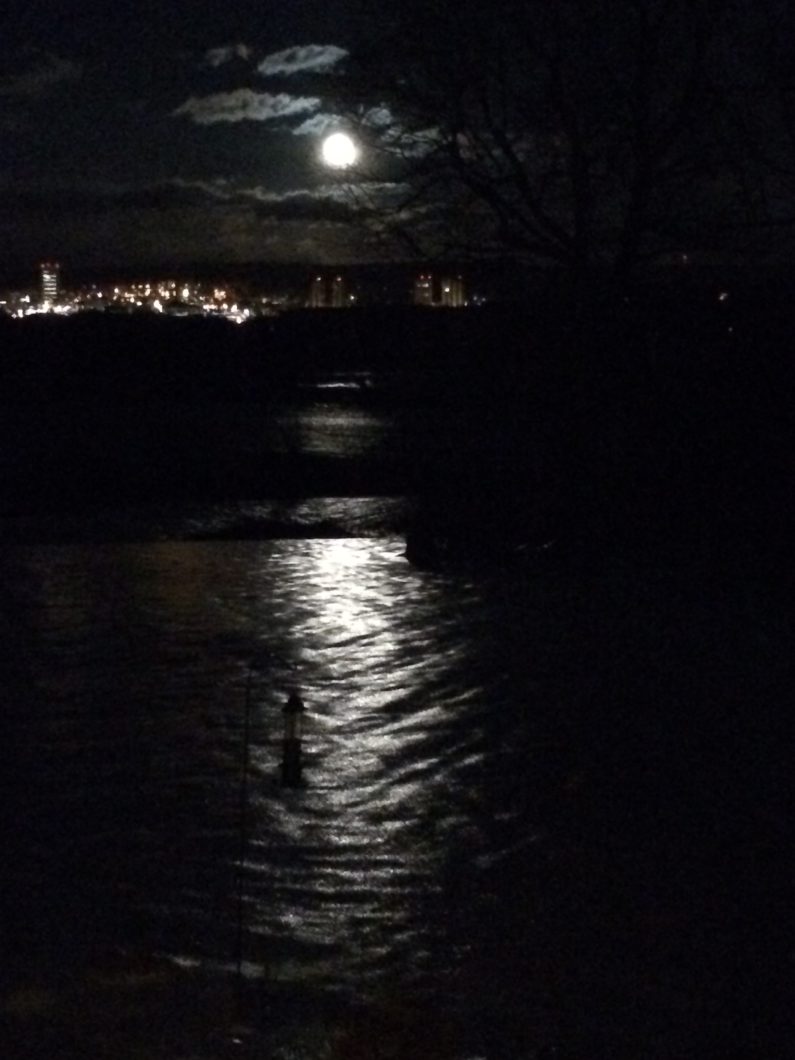When water turns ice does it remember
one time it was water?
When ice turns back into water does it
remember it was ice?
— Carl Sandburg
I’m reading a remarkable novel right now, The Bone Clocks, by David Mitchell (same dude who wrote Cloud Atlas). In it there’s a character who has lived dozens and dozens of lifetimes over the centuries, carrying the same essential person and memories from life to life, yet also accruing the experiences and circumstantial impact of each as he/she goes.
Reading Mitchell’s descriptions of experiences his character had through other guises and in centuries past, I was suddenly struck by how oddly familiar it all felt.
No, I’m not going to pull back the curtain and reveal that, in fact, I was a Babylonian princess in a past life. You don’t need to go to something as esoteric as reincarnation to resonate with Mitchell’s intoxicating prose:
The way his character reflects on prior lives feels exactly like what it’s like to reflect back on the me of earlier chapters in this life.
The nineteen-year-old brown-rice-and-seaweed-eating symphony cellist … that was me? That ten-year-old kid in shorts playing kickball in the quiet suburban New Jersey streets; that unsuspecting forty-three-year-old having his very first conversation with that woman sitting next to him in church (having no idea that he will propose to her ten years from now)—who are those people? They seem to occupy a completely different era and lifetime than the one I’m in today.
It reminds me of something Red, the Morgan Freeman character, says in that wonderful film, Shawshank Redemption, as he reflects on how he ended up in prison.
I look back on the way I was then: a young, stupid kid who committed that terrible crime. I want to talk to him. I want to try to talk some sense to him, tell him the way things are. But I can’t. That kid’s long gone, and this old man is all that’s left.
If you’ve seen the film, you know what a beautifully rendered scene it is. That sense of wonder and distance through which he views the unreachable person of that other life, so foreign from his own yet bound by the strangely elastic thread of self-continuity … that so perfectly captures how it feels to contemplate my younger self.
Last night I snapped a picture of the moonlight reflecting off the iced-over snow of our back yard (above). Those mother-of-pearl ice-ripples are actually reflections of the moon’s cool glow … which is itself a reflection of the volcanically hot sun.
Those earlier me’s feel as different from and foreign to this present me as the photo’s rippled light to the sun … yet they are the same life, the same being.
And the even weirder thing is, the me of twenty years from now will look back at the me of today and feel the same way. But we’re all the same us.
Here’s a passage from that same centuries-old character in The Bone Clocks:
There are days when New York strikes me as a conjuring trick. All great cities do and must revert to jungle, tundra, or tidal flats, if you wait long enough, and I should know. I’ve seen it with my eyes. Today, however, New York’s hereness is incontestible, as if time is subject to it, not it to time. What immortal hand or eye could frame these charted miles, welded girders, inhabited sidewalks, and more bricks than there are stars? Who could ever have predicted these vertical upthrusts and squally canyons …? Yet all this was already there, packed into that magpie entrepôt like an oak tree packed into an acorn or the Chrysler Building folded up small enough to fit into the brain of William Van Alen.
It’s strangely comforting to know that the oak of who we will become is already packed into the acorn of who we are, and always has been.

